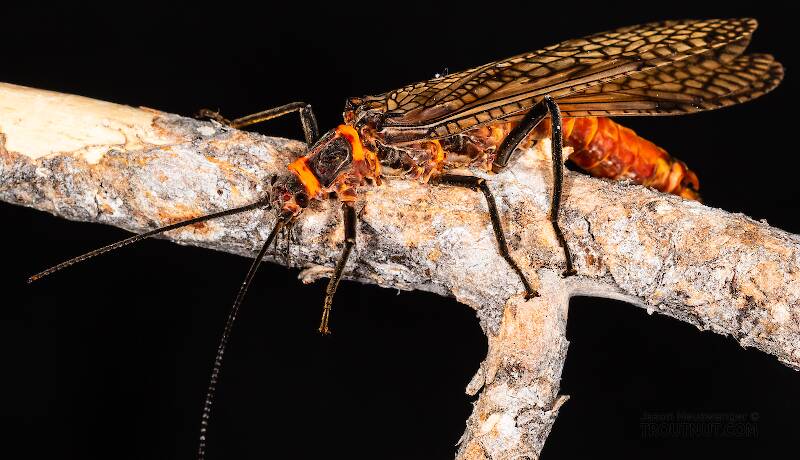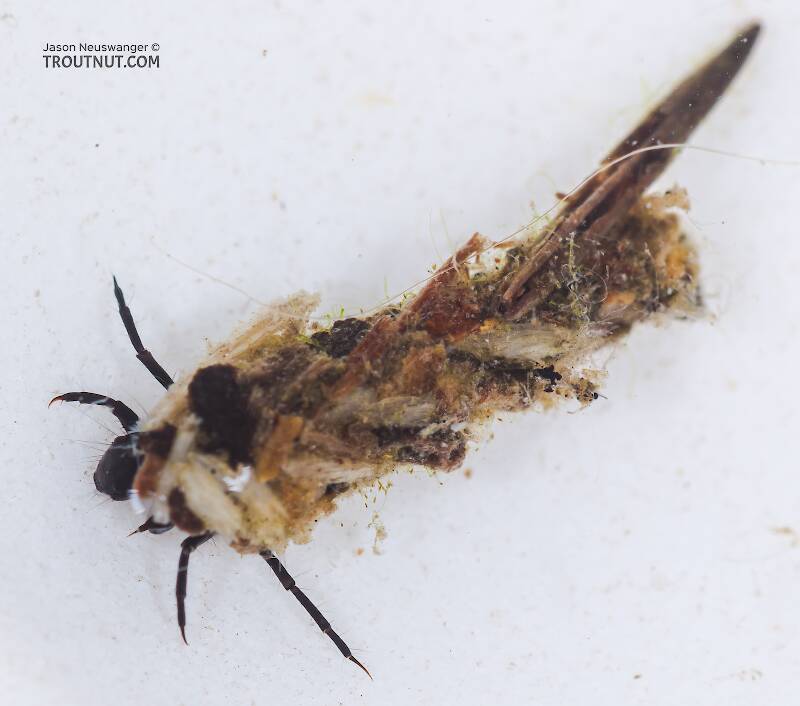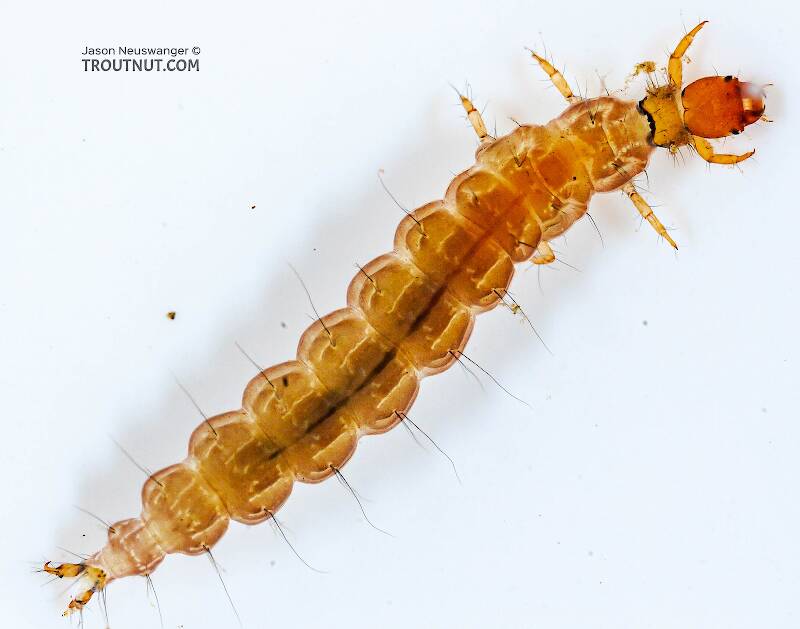
Salmonflies
Pteronarcys californica
The giant Salmonflies of the Western mountains are legendary for their proclivity to elicit consistent dry-fly action and ferocious strikes.
Featured on the forum

This seems to be a young larva of Limnephilus. Although not clear in the picture, several ventral abdominal segments have chloride epithelia.

Troutnut is a project started in 2003 by salmonid ecologist Jason "Troutnut" Neuswanger to help anglers and
fly tyers unabashedly embrace the entomological side of the sport. Learn more about Troutnut or
support the project for an enhanced experience here.
Caddisfly Species Rhyacophila carolina (Green Sedges)
Species Range
Specimens of the Caddisfly Species Rhyacophila carolina
1 Larva

This specimens shows that the name "green rockworm" doesn't quite fit all Rhyacophila larvae, even though it does fit the majority. This is actually the first of their larvae that I've found in a different color. I'm not sure if it's because of the species or because this is a young one, but I have found equally small green larvae, so I'm guessing it's the species.
Start a Discussion of Rhyacophila carolina
References
- LaFontaine, Gary. 1981. Caddisflies. The Lyons Press.
Caddisfly Species Rhyacophila carolina (Green Sedges)
Species Range
Common Names
Resources
- NatureServe
- Integrated Taxonomic Information System
- Global Biodiversity Information Facility
- Described by Banks (1911)

